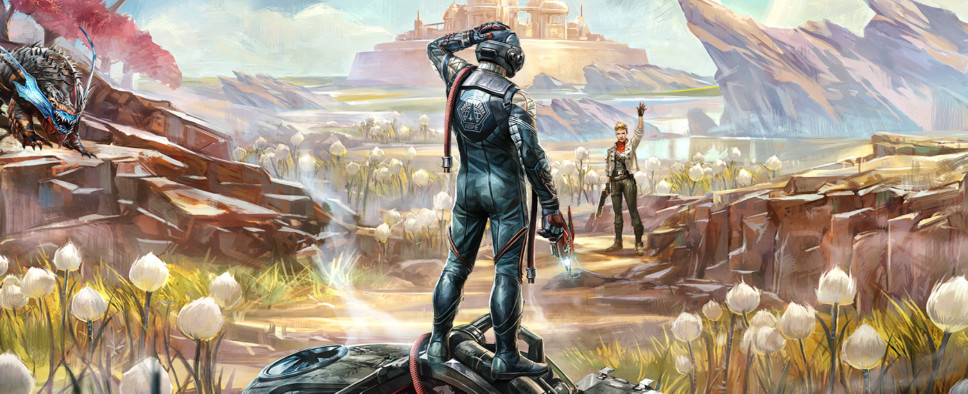The Outer Worlds - Tim Cain and Leonard Boyarsky Interview
-
Category: News ArchiveHits: 4684

Tim Cain and Leonard Boyarsky, the creators of the original Fallout and two of the co-founders of Troika Games, are currently busy co-directing Obsidian Entertainment's upcoming first-person RPG The Outer Worlds. And in order to learn a thing or two about this ambitious new project, the folks over at PC Gamer had a chat with the two developers. This resulted in a fairly extensive interview that covers a bunch of topics, including the development of Fallout, the initial ideas behind The Outer Worlds, and much more.
A few sample questions:
PC Gamer: When you thought about the games you've made before, what did you say at the beginning of developing this game that you wanted to do differently? Not just the theme, but the guiding tenants of the design, of the story you wanted to tell, what the player was going to be able to do in the game. What did you want to do that you hadn't done before?
Tim: When we made Fallout, I was always going 'in the main quest, you always have to be able to fight your way, talk your way, or sneak your way through. Since then all this stuff has happened with companions and people love having companions. We're not doing romance because, well, that's been done. But I wanted to explore the things a player can do with his companions that still felt like the player's the hero, but make the companions much more integral to his path through the game. And that's what that fourth path came up, the leader idea.
There are skills that support it. The way you interact with your companions changes, and it's just a really interesting path through the game. It's more of a jack of all trades. Once you switch out companions you're good at different things. That is a really fun character to play because you're like, 'hey, let's go try and talk to these people.' You do it and fail. 'Okay, you two go back in the ship. I'm going to load out these two combat guys and we're just going to go kill everybody.' You can't do that with other characters. You can't just change your build on the fly like that.
Leonard: From a story standpoint, every time we do a game, we're just trying to get better. You learn way more from failure than you do from success and we've had a lot of, uh, learning experiences. But yeah, I've always strived to have characters that no matter how ridiculous the situation is or even how ridiculous their motivations might seem on the surface, that have some sort of a depth and reality to them. Even if they feel silly, there's a heart to them. So to me it's all about just finding new and better ways to tell a story.
Tim: None of our villains ever feel like they're just, 'I'm evil and twiddling my mustache for the fun of it.' They always think they're being good or they know they're being evil, but there's ultimately a good goal or they feel like there's no other choice but to do this. So sometimes you're like, 'you know, you're right. I think I want to be evil with you.' It's an interesting thing because you find yourself feeling sympathetic for some of the evil characters.
Wes: It's kind of obvious from seeing the game that it's not gonna feel like a Star Wars light side/dark side, or a Mass Effect Paragon/Renegade kind of game.
Tim: It's all grey side.
Leonard: That's something we always do. We can't seem to get away from it. Not that we want to, but that's what appeals to us. The ability to not only be able to make your own decisions and make what choices you want to make, but also not having a clear-cut 'what is the best choice here.' And so that's where players have to start really thinking about 'what do I want to do as a character' as opposed to, 'well, you know, I always play the good guy, so I'm always just going to pick helping people.'
Well if you're helping this guy, is that actually the good thing to do? It just promotes some more thinking on the part of players who care to contemplate that. There's certain people on our team who just like to run around shooting people, which is fine too. That's a valid way to play. And that needs to be fun too.
Tim: That's why we always have slides in our games at the end, and we're going to do it in this one too. It's saying, you know all these things you did while you played? These were all the effects you're going to have. And it often makes people go, 'I want to replay the game. I didn't realize I was being so much of a jerk.'

